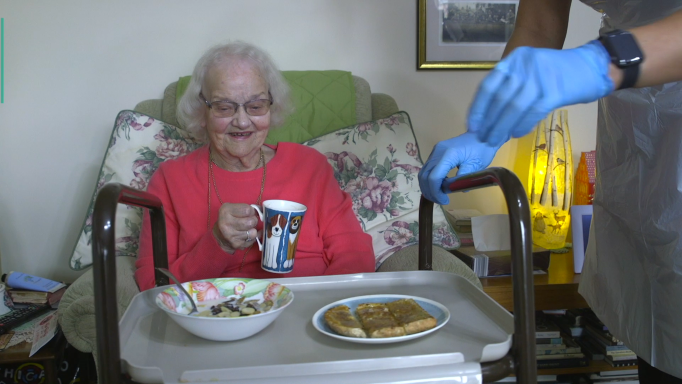An early dementia diagnosis is something that comes with a lot of considerations whether it is for yourself, a loved one or someone you care for/live with around how best to proceed living your life as normally as possible. Sometimes, being moved into a care home is not something that is the best option for yourself or your family and just because you receive a diagnosis doesn’t mean you are immediately ready to completely change your living situation. So we want to give you a few tips and tricks on how to make your home dementia friendly, there are a few minor adjustments that can be made around the home that can help to create a safer, healthier environment.

Signage
A simple way to make your home dementia friendly is the introduction of signage. Signs and labels around the house can help someone to function around the home and remember their daily routine. This can also help to guide them with things such as what is in their cupboards, what each room is and what each switch is connected to.
Little pointers that can help someone remember what they’re days are usually like can make all the difference with their lucidity. Make sure that the writing is large, bold and easy to understand – maybe consider adding little pictures to help with explaining. It is also beneficial to have the labels at eyeline or directly in line with how they would interact with the object. EG: If you are leaving a note on an alarm clock, have it placed directly on the front of the screen or on the buttons to guide them in what to do next.
Colours
Dementia can affect a person’s sensitivity to different colours. Making the colours of the walls distinguishably different can help with a person’s orientation. Similarly, having brightly coloured furniture that contrasts the walls and floors can help further.
It can also be useful to use contrasting bold colours for specific items around the home such as bannisters, kettles, light switches etc. Making points of interest really obvious can be really important to help people with their daily navigation.
Avoid lots of patterns as this can become confusing, dementia can affect a person’s sense of perception – meaning that they may see one thing as something else entirely. So, heavy patterns can become really hard to recognise/not become alarmed by.
Lighting
As we have previously mentioned, clarity is really important and this includes good lighting. This can drastically reduce the risk of trips and falls around the home and can also help with any disorientation that may be experienced. Areas such as staircases, bathrooms, kitchens and other high traffic areas are really important when it comes to good lighting to reduce the risk of accidents.
Good lighting is important to reduce shadows, glare or reflections from the home.
Flooring
Trips and falls can be avoided by removing trip hazards such as rugs or mats. As mentioned, dementia can affect a person’s sense of perception, so not only can rugs and mats become a trip hazard, they can often be mistaken for an object that needs to be stepped over – introducing an unnecessary risk factor.
Similarly, the texture of the floor can play a part. For example if the floor is shiny, this can be misperceived as being a wet surface and can cause distress and/or an accident. Trying to make sure that the floor is a matte texture and a colour that contrasts from the walls and floor can be an easy way to avoid this.
Mirrors
Due to the fact that dementia can cause misidentification, mirrors can easily alarm someone with dementia if they do not recognise either themselves or their room within the reflection. Try to remove any unnecessary mirrors from within the home and it can also help to close curtains or cover windows at night to stop reflections from the windows.
A dementia diagnosis can be incredibly stressful and understanding what is the best course of action for you or your loved one can be really helpful. Knowledge is power and knowing how to make your home dementia friendly can be a really useful, calming tool. Others may need external care or help with managing the day to day, and this is something that only you can judge for yourself. Just know that help is always available to you as and when you need it.
Contact Us
If you still want to find out more about the services a Home Care Agency can provide, or you are thinking you may require the services of a professional Home Care Provider, you can contact us here or call 0300 124 5004 to speak to one of our friendly team in confidence. Rest assured we will work with you to ensure you or your relative receive the very best in Home Care Services and will be able to offer a tailored service to meet your needs.


